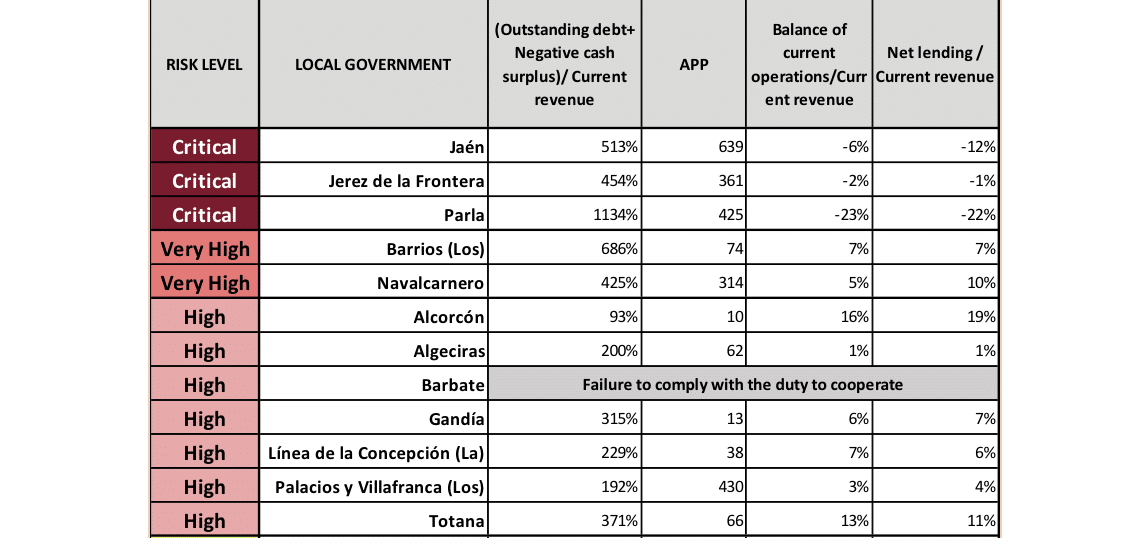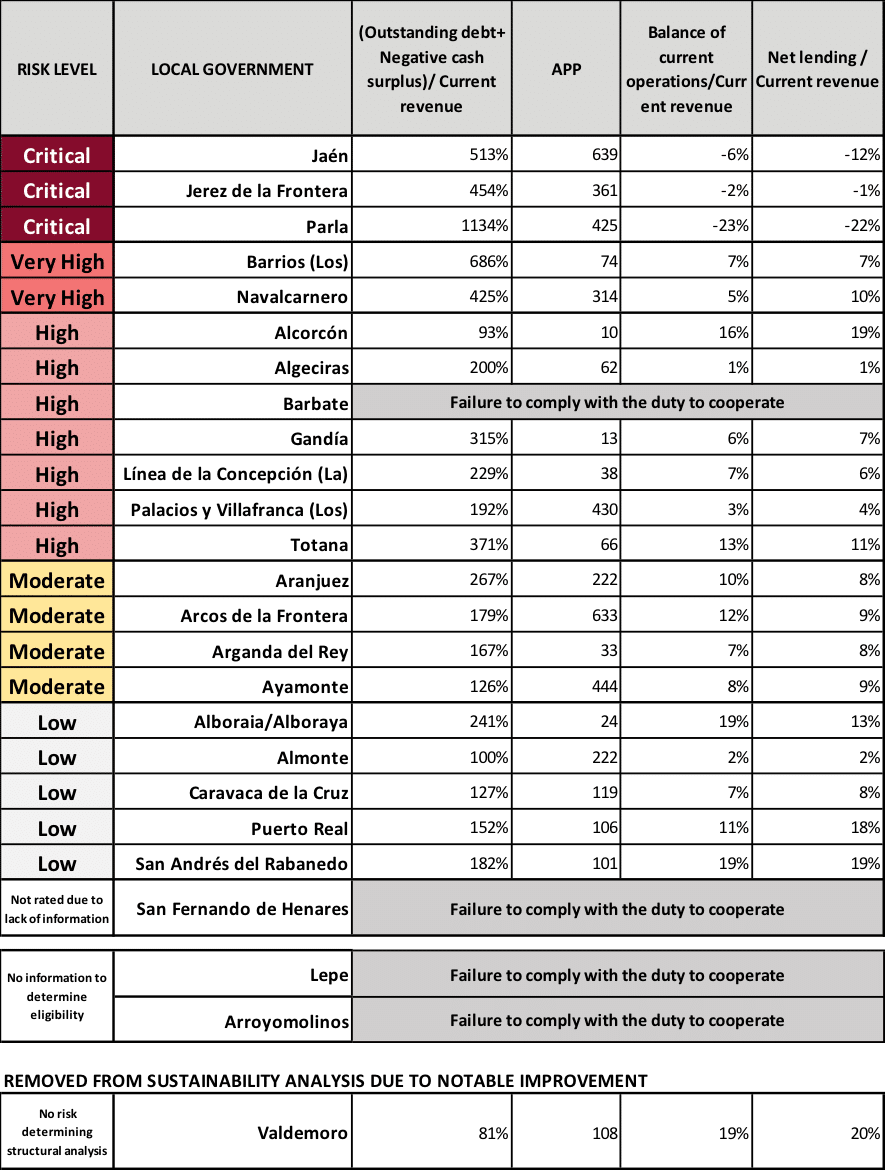- The risk rating has been calculated on the basis of a combined analysis of the overall liability position and the ability to return to a sustainable situation in the medium term
- The City Councils of Sanlúcar de Barrameda and Isla Cristina are removed from AIReF’s analysis as they have improved their sustainability situation
- The City Councils of Arroyomolinos, Lepe and San Fernando de Henares, which are included in this analysis for the first time, have failed to comply with their duty to cooperate as they have not submitted the requested information. The City Council of Barbate has also failed to fulfil this duty
- AIReF has rated the City Councils of Alcorcón, La Línea de la Concepción, Los Palacios y Villafranca, Navalcarnero and Parla with uncertainty
- All the selected city councils maintain their risk rating, except those of Algeciras, Los Palacios y Villafranca and Navalcarnero, which worsen, those of Ayamonte and Totana, which improve, and that of Valdemoro, which, once evaluated, is removed from the analysis due to its notable improvement
The Independent Authority for Fiscal Responsibility (AIReF) today publishes its Supplementary Report on the Individual Evaluation of the Main Lines of the 2022 Budgets of the Local Governments (LGs). In this report, AIReF has reviewed the selected group of LGs with structural sustainability problems that will be monitored, given the start of a new budget cycle.
The 25 city councils with sustainability risks selected for the evaluation are the same as in the previous cycle, except for Sanlúcar de Barrameda and Isla Cristina, which have been removed from the analysis because they present improvements in their sustainability situation, and those of Arroyomolinos, Lepe and San Fernando de Henares, which have been included in this analysis for the first time.
As in previous reports, the risk rating has been calculated on the basis of a combined analysis of the overall liability position and the ability to return to a sustainable situation in the medium term.
AIReF has rated the City Councils of Alcorcón, Barbate, La Línea de la Concepción, Los Palacios y Villafranca, Navalcarnero and Parla with uncertainty as they failed to provide the information requested. Of these, only the City Council of Barbate has failed to comply with its duty to cooperate as it failed to submit any information. The City Councils of Lepe, Arroyomolinos and San Fernando de Henares also failed to cooperate and have therefore not been rated.
All the selected city councils maintain their position, except those of Algeciras, Los Palacios y Villafranca and Navalcarnero, which worsen their risk rating, those of Ayamonte and Totana, which improve, and that of Valdemoro, which, once evaluated, is removed from the analysis due to its notable improvement.
The expansion in expenditure, in a context of suspended fiscal rules, is particularly relevant in governments with problems, given that it decisively influences the future sustainability of these LGs. The computable expenditure of this group of LGs with problems has grown by almost 10% between 2019 and 2021. Particularly noteworthy are the cases of Alcorcón and Gandía. Despite their risk situation, they plan to apply almost 35% and 92% of their previous savings to new expenditure, respectively. In the case of Alcorcón, this increase does not seem to be a direct consequence of the pandemic, according to the data provided.







